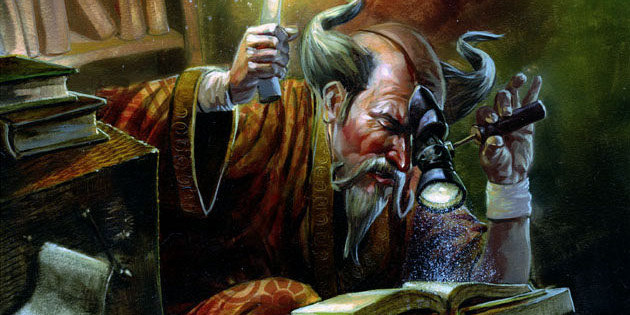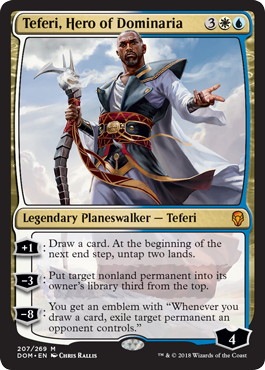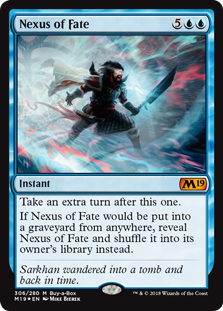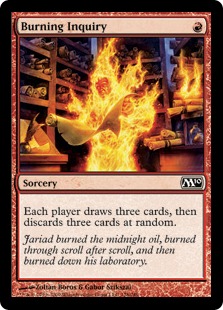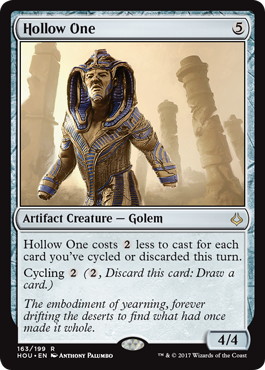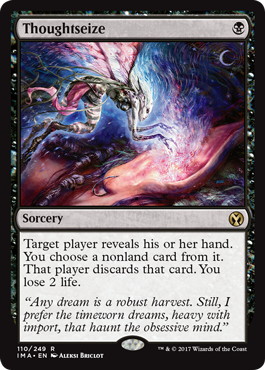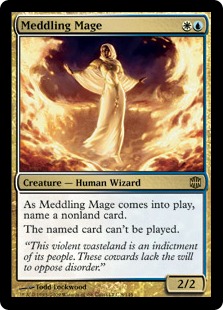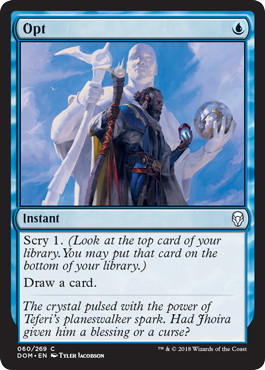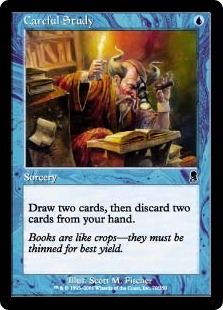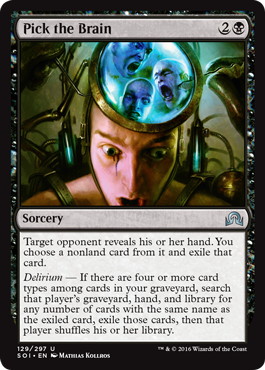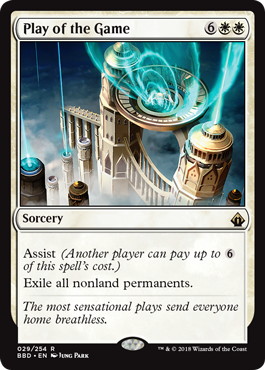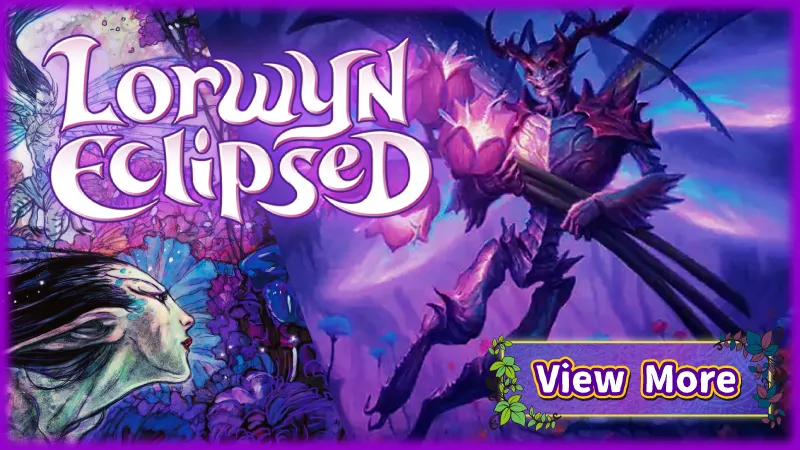Introduction
It’s a few weeks before Magic Tabletop Mythic Championship 2019 at MagicFest Cleveland. I haven’t played a match of Standard since the last Pro Tour. I probably won’t play a match of Standard until two or three days before the deck submission deadline.
I am a Limited player. I don’t enjoy constructed and will generally only play it when preparing for Pro Tours. I also spend very little time on it. Before a Pro Tour, I’ll usually play 2-3 constructed leagues on magic online and 30-50 drafts.
Despite neglecting the format that makes up the majority of PT rounds, I’ve had a fair amount of PT success. I have undoubtedly been extremely lucky. I also think I’ve made some good deck selection choices that helped reduce the cost of being unprepared.
While it’s possible to be successful without much preparation, lack of preparation is of course going to hurt your chances. My PT constructed win rate is barely over 50% compared to about 60% for draft. If your only goal is to maximize your chance of winning the tournament, you should put as much time in as you can. But if you’re a Limited player and don’t have much time or desire to play constructed, here are a few things I’ve learned about deck selection and tournament preparation that will help you get the most out of reduced practice time.
Deck Selection
Avoid Control and Combo
If you’re playing a tournament with very little practice, it’s extremely helpful to pick a deck that makes the most use of your previous magic experience. As a Limited player, the vast majority of your experience is with midrange creature decks that win through combat.
Combo decks generally don’t exist in Limited. Even control decks in Limited are almost always just a different flavor of midrange. If you play aggro or midrange in constructed, your Limited experience will be at least somewhat relevant for everything from combat to mulligans to sequencing. If you play a control or combo deck, your Limited experience will be much less helpful.
This applies most to Standard. In Standard, the gameplay is closer to Limited than it is in older formats so Limited experience is more valuable. Standard also usually has a number of viable aggro and midrange decks to choose from.
Play Easier Decks
Sometimes it’s better to choose a slightly worse deck that’s easier to play. It doesn’t matter which deck is best with perfect play. You want to select the deck that you think will perform best with the amount of effort you plan on spending to learn it. When selecting a deck for PT 25a, I chose Hollow One over KCI and Humans largely because it was the easiest to play.
Play Decks That Care Less About What the Opponent Is Doing
One of the biggest downsides about being underprepared is not knowing much about other decks in the format. This is especially true for Modern because of the large number of viable decks. When you aren’t always going to be familiar with your opponent’s deck, you want to play a deck with decisions that are less affected by your opponent’s deck.
Discard effects like 《Thoughtseize》 get significantly worse when you don’t know which of your opponent’s cards matters the most. A card like 《Meddling Mage》 becomes almost useless when you don’t know the opponent’s deck.
This also means that decks that have the same role in most matchups have an advantage. If you’re playing an aggro deck, you’ll generally know your role in the matchup even if you don’t know exactly what your opponent is playing. This is also true for some combo decks.
Choose One of the Current Best Decks
I think this is generally good advice for everyone new to the Pro Tour. With the delay between a set’s release and the corresponding Pro Tour, the best decks in the format going into the tournament are always at least a reasonable choice and are often even the best choice. It’s extremely difficult to break a format and quite easy to trick yourself into thinking that your brew has better matchups than it actually does. I wouldn’t suggest trying.
Also, make sure you don’t sacrifice much overall deck power for the other considerations I’ve talked about. It’s good to play a slightly weaker deck that you’ll pilot better, but no other factors will make up for your deck is bad.
Preparation
Articles and Videos
My first step when learning a new deck is to read articles and watch videos. Other people have already done the work to learn the deck and you can get a significant jump-start by absorbing as much as possible from them. I find watching videos to be especially helpful. You can learn about every aspect of playing the deck. I find just having seen the way the deck plays out in a few games immensely helpful when I start practicing.
When watching videos, it helps to actively try to learn from them. Figure out which decisions you’d make in the player’s position. If they end up making a different decision, try to understand why. At this stage of the process, different decisions are usually because you missed something and are an opportunity to learn.
Sideboarding Guides
Sideboarding guides are another great way of getting value without having to put the time in yourself. If you take an incorrect sideboarding strategy during practice, you’ll get distorted information about post-board games. If I have a guide available, I’ll stick to it firmly until I’m very comfortable with the deck. Often, I’ll stick to it for the tournament if I have faith in the source.
Whether you’re using a guide from an article or not, I would recommend bringing sideboarding notes to the tournament. Even if you know your plan well, it’s easy to forget or overlook something in a long tournament. I find playing when I’m underprepared a lot more mentally taxing so removing the opportunity to make a dumb mistake due to fatigue is especially important.
Play the Deck
Learning from articles and videos is extremely valuable, but it can’t completely substitute experience playing the deck yourself. Watching someone play and agreeing with their decisions isn’t the same as making the decisions yourself. Even if you see why a line is correct, you might not have come up with it yourself. And there are a whole lot of simple decisions that you basically won’t notice when watching someone else.
I would also highly recommend getting at least a little paper practice. It helps to get used to the triggers and mechanically operating the deck. This is especially true if the deck has unusual requirements, like keeping track of mana and storm count in Storm or having a large graveyard visible in Dredge. Depending on your deck, goldfishing will often work fine, but don’t take shortcuts.
Conclusion
If you pick an easy deck that makes the most of your Limited experience, you can get respectable constructed results with very little effort. You’ll be at a disadvantage to people who have put more time in, but their edge is surprisingly small.
Ben Hull


